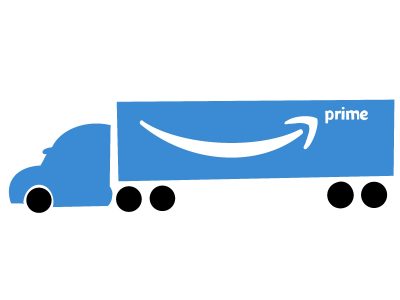In the midst of a devastating pandemic, retailers have toppled one after the other, either closing temporarily or going out of business entirely. Name brands that once seemed powerful and untouchable — such as Neiman Marcus and J.C. Penny — have filed for bankruptcy. But, small businesses have been hit the hardest by this economic fallout.
No one has escaped the effects of work-from-home policies, lockdowns and stay-at-home advisories. Or, almost no one.
Amazon has continued to grow as a retail giant in the past year, going on what can only be described as a “hiring spree.” In its latest expansion, Amazon announced a plan to hire 3,000 new workers in Boston.

Small businesses make up nearly half of private-sector jobs, and now that they are struggling to stay afloat, Amazon has swooped in to fill that demand. The Selling Guys can make a lot of money in the right platform and with proper guidance.
Creating 3,000 more jobs is unequivocally a good thing. The economy hangs in the balance with record-high unemployment — any jobs are welcome.
Since the beginning of the pandemic, the United States has lost approximately 10 million jobs. Amazon’s spree-hiring, as a result, is a blessing. This is especially true when the jobs come with benefits and health care.
The jobs will be added over the next couple of years. With about 400 positions currently open, the rollout plan will give Boston residents a chance to re-enter the workforce, ensure job security in a post-pandemic world and stimulate the local economy.
By creating these new opportunities in urban tech hubs such as Boston, Amazon could also help attract new people and replace the population who migrated out of cities during the pandemic. Massachusetts, in particular, was among the top 10 states people migrated out of in 2020.
However, we cannot be so quick to simply thank Amazon for its business.
Amazon isn’t giving Boston and other cities this economic boost because Jeff Bezos is feeling charitable. Amazon needs new hires to keep up with its ever-growing sales — to surpass Walmart as the biggest private business in the United States — just as much as Bostonians need the jobs.
There’s also a certain unease in knowing this company and monopolies like it have thrived throughout the pandemic— benefiting off the trauma, death and financial loss the rest of us faced in the past year. The pandemic has killed 400,000 people, and in the meantime, Amazon has added 400,000 jobs.
After the economy reopens, what will the job market look like? Our society already relies heavily on Amazon — the products, streaming platform and now grocery shopping and stylist services. But with the addition of so many new jobs, Amazon has all but ensured the unwavering dependence of employees and customers.
The long-term implications of this dependence is terrifying. For smaller stores who are trying to rebuild after the pandemic, will their consumer base be the same as before? Or, will retail giants such as Amazon have drawn customers away from them indefinitely?
As the monopoly grows even stronger, other businesses will certainly face a level of competition they may not be able overcome. Amazon is becoming a pillar of our society — a multi-faceted service we depend on daily. To have a business conglomerate so heavily intertwined with our daily lives is something we should be alarmed by.
Along with dominating the product market and the job market, the company will also be taking up more physical space. Amazon increased its physical footprint by 50 percent in 2020, compared to the 15 percent increase of 2019.
With the non-stop hires and overall growth, the company looks like it will follow that trend in 2021.
In Boston, Amazon is planning on building a site to accommodate for doubling its number of workers. To offset the impact of expansion, the new Seaport offices appear to be built with the intention of enriching the community. The development, set to finish in 2024, includes a community dog park and two performance art theaters for the public.
There’s no denying the hires provide at least a temporary pick-me-up for Boston and its residents. It’s a victory. Amazon is using its power for good, but also for its own gain.
Whether this particular good will be sustainable for the economy and whether Amazon’s growth will have a negative impact on local businesses after the city opens back up has yet to be seen. But it is certain we must hold these giants to higher standards, or they will continue doing good with ulterior motives.




















































































































